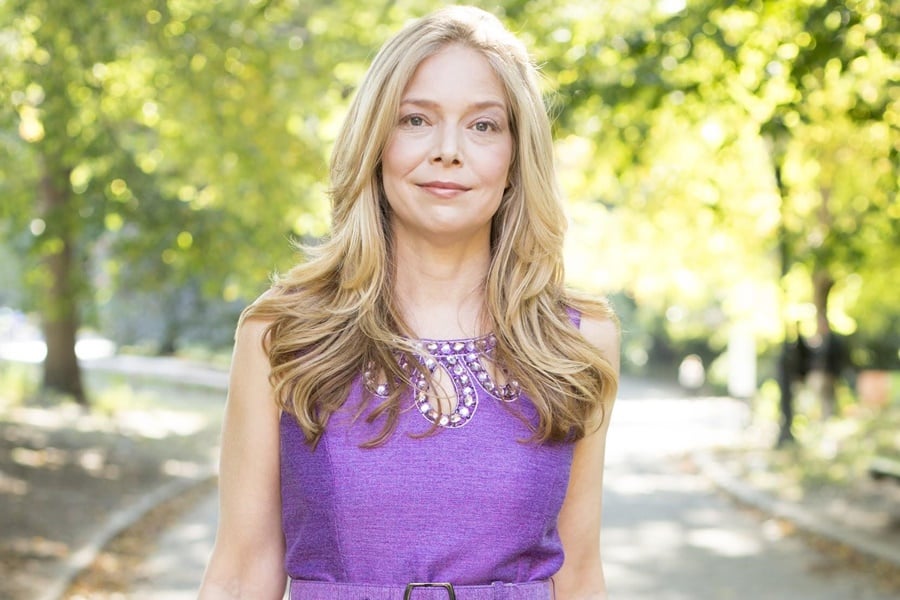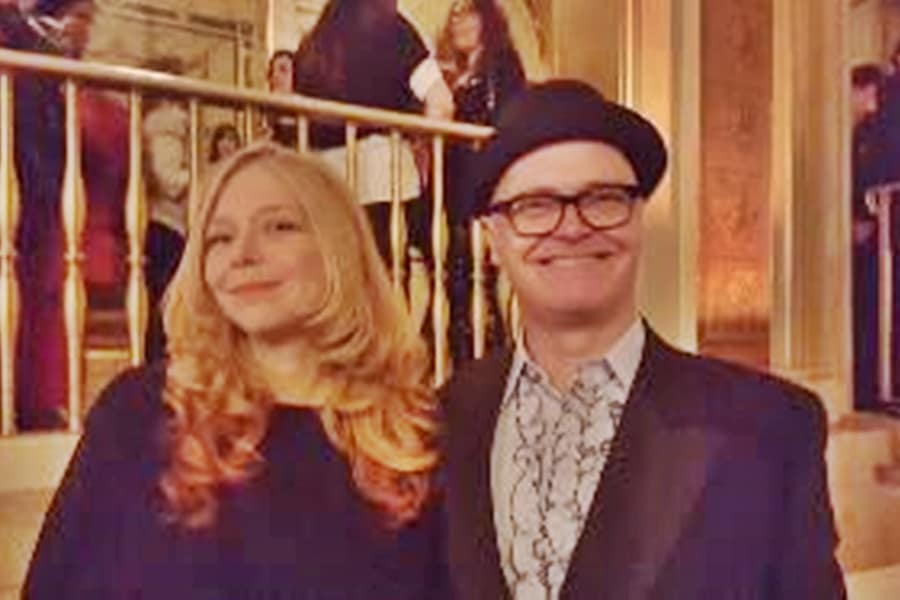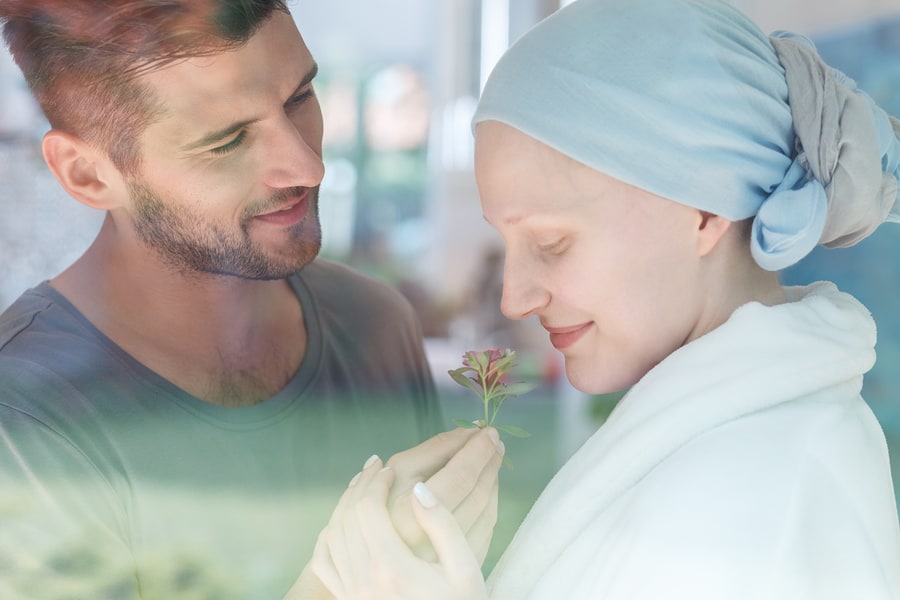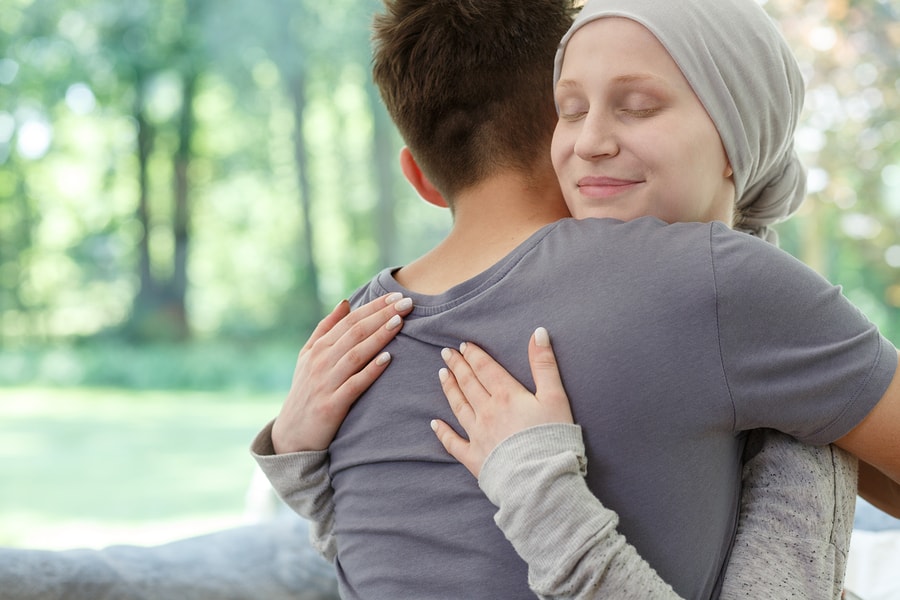When I was diagnosed with colorectal cancer in my 30s, it immediately and completely changed every aspect of my life.
Within a week I had left a job that I loved, time hanging out in cafés turned into hours spent in doctors’ waiting rooms, and instead of thinking about what outfit I would wear out on Saturday night I was 100% focused on how to save my life.
I spent a full year going through chemotherapy and surgeries — and I survived. The cancer went away, and has not come back.
But even though the experience changed many things, there’s one aspect of my youth it did not. Through those long sickly days of chemotherapy and recoveries from surgery, I still had crushes and often wished for a partner to cuddle with as a lay weakly in bed.
Though some may not think of a cancer patient as a sexual being, the diagnosis does not erase our romantic longings.
In fact, my favorite day during that year of sickness was going on a walk and then having dinner with my biggest crush at the time. It didn’t progress into a true romance, but with side effects from chemo that included nausea and weakness, a walk and a meal were about all I could handle.
My cancer treatments were relatively brief, with a beginning and an end that were approximately one year apart from each other. I was single when I was diagnosed with the disease, and most days felt too sick to want to go out on a date. Though I wasn’t actively playing the dating game while going through my treatments, I still had good moments when I flirted just like everybody else.
When I emerged on the other side, I had a completely new approach to dating.
Going through the chemotherapy and surgeries didn’t just save my life, it changed my outlook. I had fought hard to stay alive, and was utterly unwilling to accept treatment from a love-interest that diminished my value.
For years as a 20- and 30-something dater, I had accepted all kinds of bad behavior. I lacked the self-esteem to stand up for myself and let go of the people who didn’t see me for the worthy person I was, and am. I pined for men who didn’t return my calls, tried to convince those who said they didn’t want a relationship that they might change their mind, and even continued to wait for a person who would show up hours late for our dates, or not show up at all.
After spending a year fighting for my life, I put up with none of the above. It’s like I developed a sixth sense for those who didn’t value me and I swiftly let them fall away. The greatest benefit of my new superpower was that when someone did come along who appreciated and then loved me, I had the space, capacity, desire, and ability to receive his affections.
Love is an essential part of living, and one can still find love while living with cancer.
For some people with cancer, however, the disease will be chronic, without a clear end in sight. Some of us may have just started dating someone new when we are diagnosed, and not want to wait until we are done with treatments to resume the romance. Cancer doesn’t need to mean relinquishing any hope of a romantic life, during or after treatments.
Though cancer is in our bodies, and is our business, it will affect those we become involved with, so if we have cancer when dating we will want to share that information with our dates before too much time passes. We don’t want to feel that we are hiding something, and we don’t want our potential partners to feel that we kept a secret from them. It’s not necessarily a first date conversation, but if there’s a spark, we may want to have that talk before too long.
Cancer hasn’t prevented a friend of mine, who currently has cancer, from indulging in great romance.
My friend Marta Csuka was diagnosed with “incurable” brain cancer at the age of 37. The tumor was removed but she was warned that she had very little time left before it would grow back and take her life. She swept aside the warnings and set out to mend her body by eating an all-raw vegan diet, avoiding chemotherapy and radiation. She shares on social media about her success and happiness in fending off the cancer, demonstrating for others that life following such a frightening diagnosis can be beautiful, vibrant, and romantic.
Marta says, “My experience dating after a cancer diagnosis was shockingly good! I’ve dated three men since my ‘death sentence’ two years ago. Two of them I met because of my cancer and so they knew about my ‘dis-ease.’ They were both raw vegans so they were very open-minded about how the right nutrients can reverse the cancer, even when western medicine declared me terminal.”
Now Marta is engaged to a man whom she met following her diagnosis and they have plans to wed in the near future. She is a positive, healthy, and smart woman. Why wouldn’t someone else love her?
Another woman I know lives a happy, productive, and creative life with cancer.
She has cancerous tumors that are not growing, but remain stable in her body. Like Marta, she became engaged to and married her husband after she had been diagnosed. She didn’t hide her cancer, but celebrated her survival, writing about her experiences and inspiring others by sharing how she stays in great physical, mental, and spiritual health despite her diagnosis. Living her life to the fullest while having cancer, she fell in love and made a lifelong commitment to a partner.
Above: the author and her partner.
When cancer comes flying at us out of left field, we can still enjoy all of the romance that our hearts desire.
Life often throws us curveballs. It is not a straight line. Cancer treatments may dramatically change our bodies. For many women who have had breast cancer, there is a deep fear of rejection following a mastectomy. But plenty of potential partners will embrace a woman who does not have breasts. Those scars tell stories of survival and there are others out there who will admire our strength.
Our perspective has the power to change our lives. Whether you or someone you know has been delivered a tough diagnosis — as I did when I got cancer in my 30s — how you respond can make a huge difference. An illness doesn’t negate our romantic desires so why should we repress that part of ourselves? Great romance, a sweet walk in the woods, or a cozy cuddle when we’re feeling sick, are all wonderful offerings of life that we don’t have to deny ourselves when faced with an illness, and they can help us feel better.
For more empowering love lessons, read about this young wife’s advice to “be yourself.”





